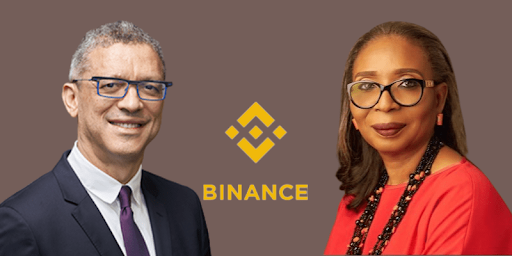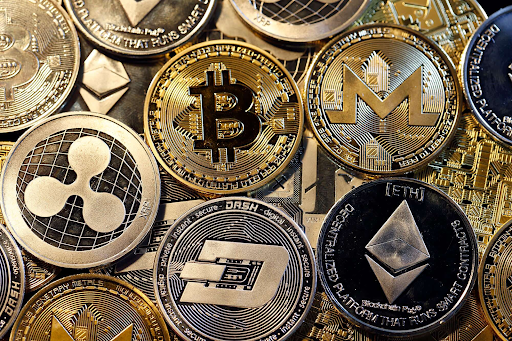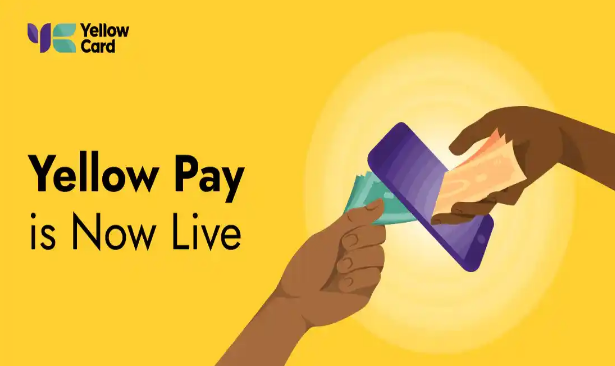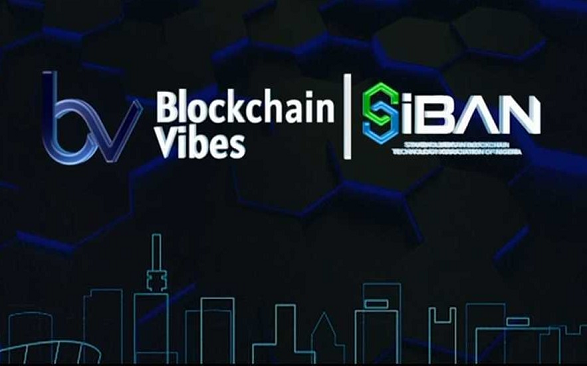The use of cryptocurrencies is becoming increasingly widespread. These are decentralized digital or virtual currencies that may be spent or traded utilizing blockchain technology. They are sometimes referred to as altcoins. The degree to which they accomplish their goals of enhancing privacy and anonymity is an open question for many. Some of these currencies allow the public to view all transactions, while others give users the option to maintain their privacy. Others choose to keep the privacy feature wholly hidden from view.
What is Monero?
Monero is a cryptocurrency that focuses on privacy and was introduced in 2014. Monero stands out as a cryptocurrency due to its privacy protections and untraceability. The requirement for anonymous transactions inspired the creation of Monero, an open-source cryptocurrency. In addition, the problem of scalability, which is experienced by many other cryptocurrencies, was designed to be solved through the development of Monero.
The concept is the foundation upon which it is constructed and runs. Blockchains are public ledgers that record all transactions on the network and form the basis for digital currencies.
By design, Monero’s blockchain cannot be tracked. By masking sender and recipient addresses, it protects the privacy of all transaction data, including gender identity, recipient identity, and transaction amounts.
Besides being anonymous, the Monero mining process is founded on equality. The idea is that everyone should be treated fairly and given a fair shot at success. Although the Monero team did not retain any ownership of the virtual currency after its introduction, they did count on user donations and feedback to fuel the project’s growth.
What is Bitcoin?
Bitcoin is a cryptocurrency, a digital currency created to function as a medium of exchange and payment that is untraceable and unaffected by the government or central banks. As a cryptocurrency, it may be bought and sold on various exchanges and provides the incentive for miners on the blockchain to validate transactions.
It’s no secret that Bitcoin is a pioneer in the cryptocurrency industry and a top choice for many investors. And it’s the place where crypto newbies can test the waters with a small investment. Now, it’s the most widely recognised digital currency worldwide.
As a result of its success, many similar digital currencies have emerged. These alternate payment systems either aim to replace it or use it as a utility or security token in other blockchains and new forms of finance.
Back in 2009, Bitcoin (often abbreviated as BTC) was the first cryptocurrency ever created. Bitcoin has a predetermined maximum quantity of 21 million tokens, and miners are responsible for the steady distribution of these currencies over time. Bitcoin (BTC) is the undisputed overall market value and trading volume champion.
Pros of using Monero
Its blockchain is opaque, so users’ transaction amounts and identities remain hidden even if the amounts and senders’ addresses are compromised, and transactions cannot be traced back to their users. Investors don’t need to purchase expensive mining hardware to mine Monero using their computers.
Because of its anonymity properties, Monero is frequently used in illegal transactions and on the dark web, and It’s impossible to track down because there is no way to link or trace the trades.
For individuals who pose a security risk or proprietors of websites, the primary advantage of It enables transactions to take place more quickly (especially when they are small).
Mining can be done efficiently on “normal” PCs thanks to it. Monero is a highly respectable and esteemed cryptocurrency,
ASICs cannot break Monero’s encryption, meaning mining the MXR cryptocurrency does not require a considerable amount of processing power. Transactions require numerous keys, further strengthening the system’s already high level of security.
Monero does not have a maximum number of blocks. Even if there is no more MXR to distribute, miners will still be rewarded with 0.3 MXR per block regardless of the situation.
Monero has accomplished tremendous growth in terms of finances and possesses a capable and powerful development staff.
Cons of using Monero
Monero’s rapid growth can be attributed mainly to its reputation for anonymity; however, this feature also presents several difficulties.
Their anonymity and decentralisation make them ideal for dark web markets where people can buy and sell illegal goods like narcotics or gamble anonymously. One reason famous dark web marketplaces like AlphaBay and Oasis saw increased usage of Monero just before they were taken down is because of this.
There are several wallets on the market that are not suitable for use with Monero.
Because of the more significant amount of encryption needed, Monero trades are more expensive than those of other cryptocurrencies. Monero is not beginner-friendly
Some complications arise with storing Monero.
Pros of Bitcoin
Despite Bitcoin’s existence since 2009, many people still hold false beliefs about this kind of payment. Investigating Bitcoin’s merits can help you determine whether or not to put your money into the cryptocurrency.
Bitcoin, like many other cryptocurrencies, can be used to make transactions quickly and easily, and it is not limited by where it is used. Bitcoin’s many uses and ease of use are also significant advantages. Bitcoins can be sent to another user in a matter of minutes, so they can be used right away at the growing number of stores that accept the currency. It’s easy to avoid or cut costs when exchanging money or buying things abroad. Bitcoins can be bought and sold instantly and without any hassle.
Transparency and privacy for users: Bitcoin users are not entirely anonymous, but numerical codes represent their identities, and they can have multiple public keys. This way, the user’s transactions are protected from public view and cannot be linked to them. Like many other financial decisions, deciding whether or not to invest in Bitcoin requires getting as much information as possible. Like many other financial decisions, deciding whether or not to invest in Bitcoin requires getting as much information as possible.
Some people think Bitcoin is extremely rare because Satoshi Nakamoto, the creator of Bitcoin, imposing a cap of 21 million on the total number of Bitcoins that might ever exist. Bitcoin is very valuable because there aren’t many of them, but its fluctuating price is the only thing that controls how much people want it.
There are no rules from a governing body. The fact that Bitcoin is decentralized is often seen as a benefit, but the lack of rules for Bitcoin investments is also a downside. Bitcoin transactions aren’t backed by the law and often can’t be undone, unlike transactions with currencies that are controlled by a central bank. This leaves users open to fraud.
Another problem is that Bitcoin transactions are not safe because they are anonymous and not regulated. Since Bitcoin transactions are permanent and can’t be undone, there’s nothing you can do if you send money to the wrong person or for the wrong amount.
There is also the possibility of losing some money. Many people who use Bitcoin keep their money in a cryptocurrency wallet, which risks their wealth if they lose their private key.
Although more and more businesses are beginning to accept Bitcoin, including Microsoft and some subway locations, the cryptocurrency is still not generally recognized. In contrast to using a debit or credit card, this restricts where the funds can be spent.
The Explosive Growth of Blockchain Funding and Cryptocurrency in Africa
What is the difference between Monero and Bitcoin?
The way that Monero and Bitcoin use cryptography to make transactions is what makes them different from each other. This leads to the creation of fake payments, making it harder for outsiders to determine where the money is coming from.
The basic idea behind ring signatures is much simpler than you might think at first. The person who is responsible for authorizing a transaction is part of a group of people that also includes people who have authorized transactions in the past. This leads to the creation of fake payments, making it harder for outsiders to determine where the money is coming from.
Over the past few years, the number of ring signatures that Monero uses has grown, which means that users can expect a much higher level of privacy.
Each digital asset has pros and cons, and the right to privacy is an old problem that hasn’t gone away. Despite the fact that this is still much slower than more common options such as
Because transactions on the MXR blockchain take an average of 20 minutes, this alternative cryptocurrency can’t be used as a payment method. The block time on the Bitcoin network is around 10 minutes on average. Despite the fact that this is still much slower than more common options such as These payments are completely traceable on the public blockchain; in fact, as we’ve seen in the aftermath of a number of high-profile breaches in recent years, it’s even possible to track stolen BTC.
When comparing Bitcoin and Monero mining, anonymity is the main distinction. When you hear that Bitcoins are anonymous, keep in mind that this was not the intention. You can look up every block, transaction, and address on a service like BlockExplorer. This means you can view all Bitcoin transactions for a specific address if you have transferred or received Bitcoin to or from that address.
Thus, Bitcoin is referred to as a “pseudonymous” currency. This means that even if you don’t know the person’s name, you can still trace all payments made to and from his address. The methods, However, hiding your traffic is complex, time-consuming, and resource-intensive.
However, Monero’s transaction privacy protections are always active. It is impossible to trace the origin of funds sent through Monero. Also, the recipient of your monero will have no idea who sent it unless you tell them. And since you can’t figure out how “rich” they are because you use a different currency, there will be periods when Bitcoin transactions take longer than usual, especially if the transaction fees are low.
Should I use Monero or Bitcoin?
Monero and Bitcoin have pros and cons, so the answer to whether you should use one or the other depends greatly on your situation.
You might like MXR because it gives you the same kind of anonymity that cash does when you use it to pay for things. This doesn’t necessarily mean that you are buying something illegal. Instead, it could just mean that you are worried about being seen doing something wrong.
But when it comes to laws, it’s safe to say that the existence of Monero poses some very complicated problems for the industry. Nations all over the world are worried that MXR could be used for illegal things like funding terrorism, laundering money, or avoiding taxes. Because Monero is a decentralized cryptocurrency, it can be hard to find out who is using it to do something wrong.
In 2020, the Internal Revenue Service (IRS) of the United States said in public that anyone who could figure out MXR’s code would get $625,000. Chainalysis and Integra FEC have been given the contracts because they are experts in analyzing forensic data for bitcoin.










